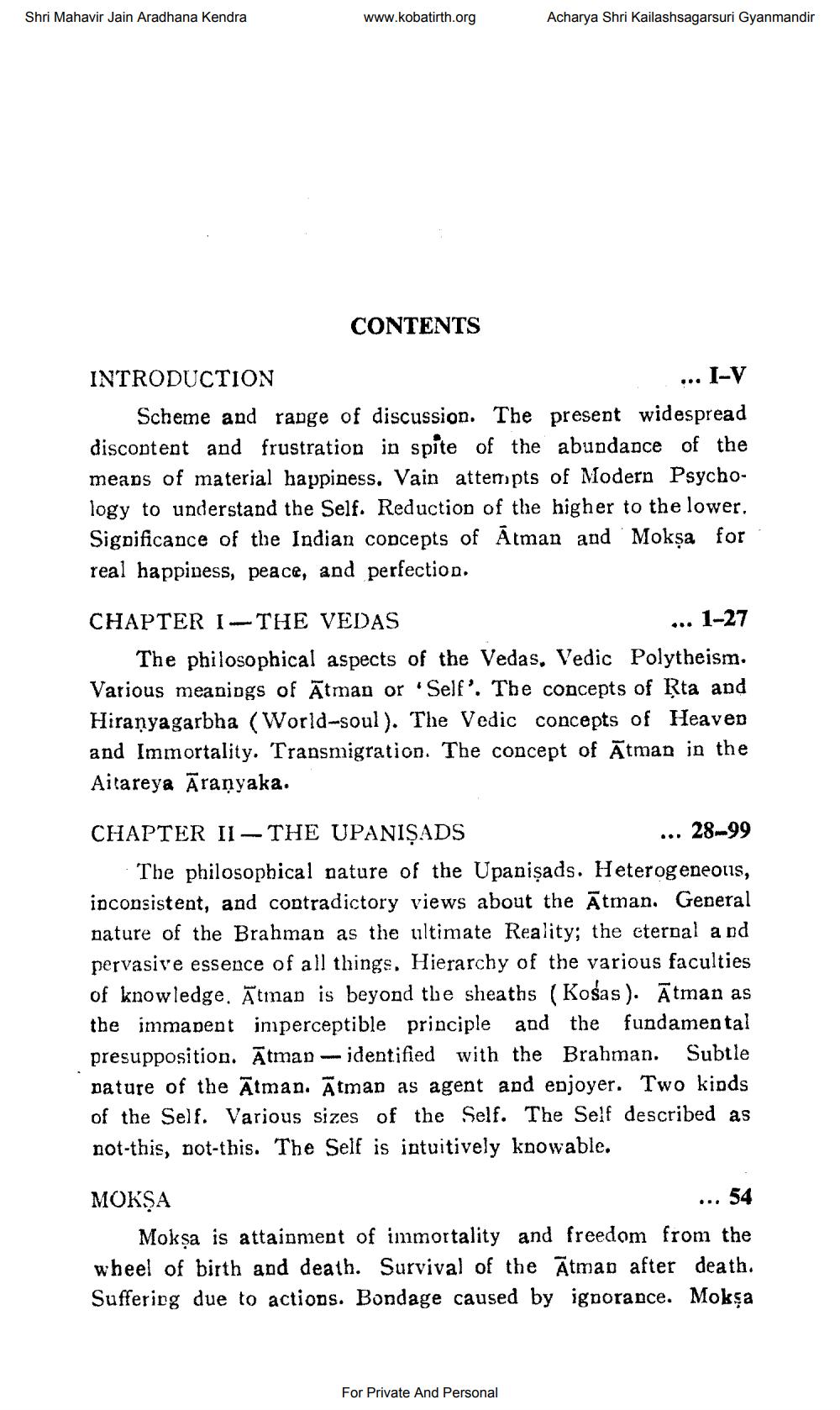________________
Shri Mahavir Jain Aradhana Kendra
www.kobatirth.org
Acharya Shri Kailashsagarsuri Gyanmandir
CONTENTS
INTRODUCTION
... I-V Scheme and range of discussion. The present widespread discontent and frustration in spite of the abundance of the means of material happiness. Vain attempts of Modern Psychology to understand the Self. Reduction of the higher to the lower, Significance of the Indian concepts of Atman and Mokșa for real happiness, peace, and perfection. CHAPTER 1 - THE VEDAS
... 1-27 The philosophical aspects of the Vedas. Vedic Polytheism. Various meanings of Ātman or 'Self'. The concepts of Rta and Hiranyagarbha (World-soul). The Vedic concepts of Heaven and Immortality. Transmigration. The concept of Ātman in the Aitareya Āranyaka.
CHAPTER II - THE UPANIŞADS
... 28.99 The philosophical nature of the Upanişads. Heterogeneous, inconsistent, and contradictory views about the Ātman. General nature of the Brahman as the ultimate Reality; the eternal and pervasive essence of all things. Hierarchy of the various faculties of knowledge. Ātman is beyond the sheaths (Košas). Ātman as the immapent imperceptible principle and the fundamental presupposition. Ātman -- identified with the Brahman. Subtle pature of the Ātman. Ātman as agent and enjoyer. Two kinds of the Self. Various sizes of the Self. The Self described as not-this, not-this. The Self is intuitively knowable.
MOKSA
... 54 Mokșa is attainment of immortality and freedom from the wheel of birth and death. Survival of the Atmap after death. Suffering due to actions. Bondage caused by ignorance. Mokşa
For Private And Personal




